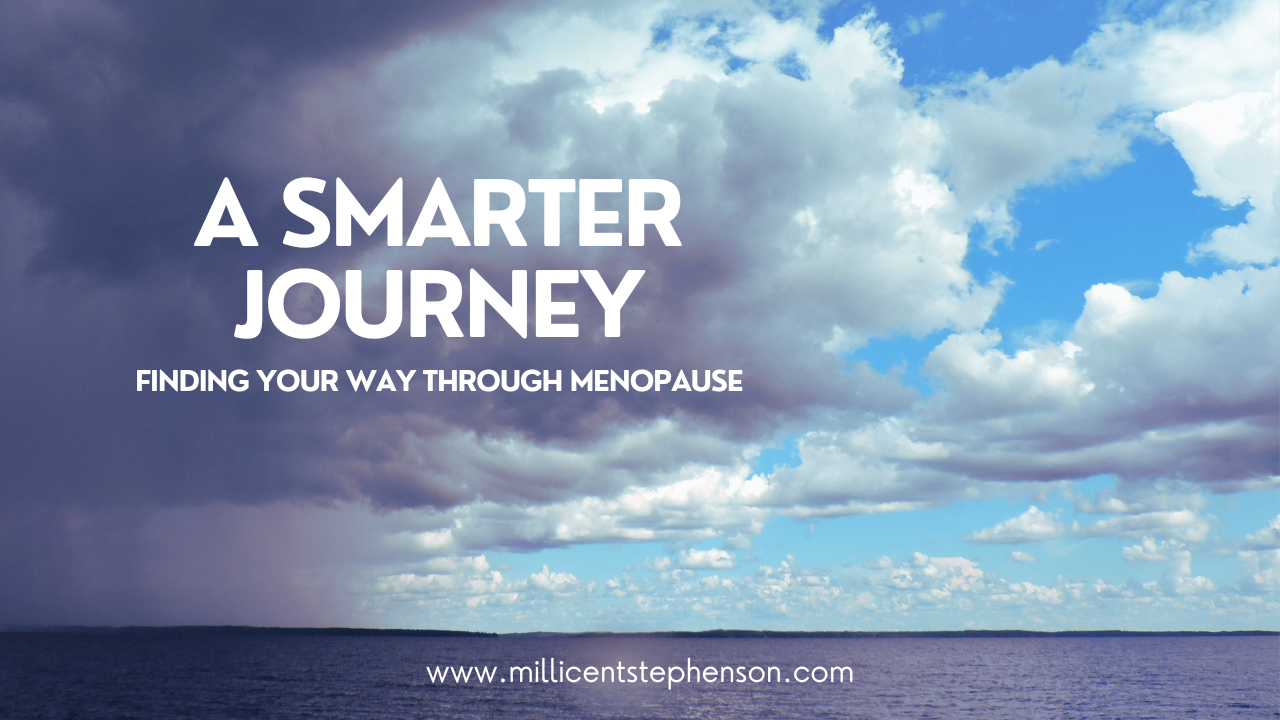A Smarter Journey: Stress Management

Stress, stress, stress, and more stress. We are living in a stressful world. When I was younger, it didn’t feel like that. I don’t know if it was because there were less stressful things, or because I was less aware, less connected with the state of society. In any case, I feel there is so much stress nowadays, with the social and political unrest, the rising cost of living, and the need to balance that with the challenges of relationships and other factors of life.
On top of all that, I’ve learned that menopause makes us more susceptible to stress. This happens due to the changes in our hormonal levels. For example, the reduction of estrogen in our bodies gives way for cortisol, a hormone produced as a stress response, to shoot up quicker and more drastically. Before taking Pamela’s course, I didn’t even suspect that what I considered overthinking and worry could actually be a natural response caused by menopause. That said, the fact that I understood why I was so stressed didn’t mean that I wanted—or could afford—to continue feeling that way.
Types of stress
The thing is that there’s positive and negative stress. Positive stress allows you to focus and solve problems quickly, it makes you sharp, strong and efficient, and lasts only the amount of time you need in order to perform the task or solve the problem that triggered your stress response in the first place. Negative stress does the opposite. It overwhelms you. Your muscles are so tense that they become stiff and achey instead of quick and strong. Your mind is so frantic that you can’t think efficiently, and you can’t rest either. It doesn’t seem to die down and it’s hard to pinpoint what exactly is causing it.
There is no way to prevent stress responses. We need them to survive. However, it’s essential to address negative stress and reduce it, as allowing it to become chronic is greatly detrimental to one’s health. Negative stress impacted my sleep, because my anxious thoughts keep making me turn in bed for hours, unable to close my eyes. It impacted my nutrition, too, because I was more likely to reach for food that’s not good for me. An exhausted and stressed body wastes a lot of energy, and to compensate, it starts craving sugar. It becomes a vicious circle, because by eating sweet things, we increase our blood sugar response until we kind of flat line, and then crave more. This is a stressful situation on itself, which makes resting more difficult. You get the idea.
What can we do?
There are two areas to work on if we want to manage negative stress and diminish its impact: habits and attitude.
Habits
Our bodies are fascinating machines in which a myriad of processes are interconnected. Just as it’s possible to get trapped in a vicious cycle of high stress, poor nutrition and bad sleep by succumbing to cravings, it’s possible to start recalibrating everything by eating the right, healthy food instead. Regular exercise is also a great way to balance stress hormones, which will lead to a better rest and more energy.
Finding the habits that work for you is no easy task. Don’t feel like you have to figure it out alone. If you don’t know where to start, or if you want professional input to the ideas you already have, book a coaching session with Pamela. She will surely be able to guide you, the way she guided me!
Attitude
One day, I told Pamela the whole story about a situation that was stressing me out. To help me, she walked me through a brilliant neurolinguistic programming exercise. I was truly like, “where has this been all my life?” With it, I could think about the situation differently and approach it with more confidence. I was able to speak with the person involved about what was happening, and with that, make my stress disappear.
Neurolinguistic programming is one of many ways to handle stressful situations in order to deescalate our stress response. Another, that I know well as a wind player, is breathing. When we’re stressed, our breathing becomes shallower and quicker, thus consciously breathing deeper and more calmly makes the whole stress response slow down. You can also get a hold of your community: talk about what stresses you with your spouse, your family, your friends. I journal every night, because it helps me process the day, accept what has to be accepted, feel my feelings and find peace. Prayer is another way, fasting works for some people. Again, if you want help figuring it out, I recommend talking to Pamela. Here’s the link to book a free consultation.
Conclusion
Above all these techniques and strategies, what is important to cultivate is a proactive attitude that doesn’t see stress responses as mortal enemies or something to be feared, but as the way our body has to help us survive. Stress responses can be good or bad depending on how we handle them. Healthy optimism, acceptance, gratitude, these are all things that’ll make stress management during menopause (and life in general) way easier!